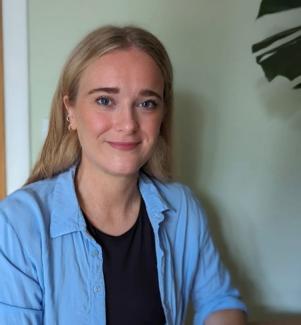PATH-SAFE Newsletter December 2023
PATH-SAFE is a Shared Outcomes Fund (SOF) research programme which aims to pilot a national surveillance programme for foodborne diseases and antimicrobial resistance.

Welcome to the Pathogen Surveillance in Agriculture, Food and the Environment (PATH-SAFE) programme newsletter. PATH-SAFE is a pilot a national surveillance programme for foodborne diseases and antimicrobial resistance.
This newsletter at a glance
- News and key updates
- Spotlight - Innovation in Biosurveillance: Recent progress and new opportunities event
- Workstream updates
- Meet the speakers!
News and key updates
World AMR (Antimicrobial Resistance) Awareness Week (WAAW) – This year, WAAW took place from 18 – 24 November, with a focus on the theme “Preventing Antimicrobial Resistance Together”. PATH-SAFE got involved and published a blog: PATH-SAFE taking a one-health-approach-to-antimicrobial-resistance, which showcases some of the antimicrobial resistance research activities underway across the programme.
Innovation in Biosurveillance - Recent progress and new opportunities event – The PATH-SAFE team led on organising this successful event held on 14 November which brought together over 100 biosurveillance specialists. Read more on this exciting event in our spotlight feature section.
WS1 Data platform - Work has gathered momentum since kicking off in January 2023. An interim system demonstration and status update to a programme audience, delivered by PATH-SAFE Data Fellow David Aanensen and project lead Digital Epidemiology Services, is set to take place in early December. Further opportunities for stakeholders to see progress will come in the New Year.
Webinar series – We will be taking a break from our webinar series in December however it will return on 17th January (14.00 - 15.00) with a presentation from the WS2d team at University of Oxford who will present on the project ‘Genomics of antimicrobial resistant Campylobacter transmission through UK Agri-Food systems’. Please get in touch if you would like to attend.
Spotlight: “Innovation in Biosurveillance: Recent progress and new opportunities” event

In many instances, the most difficult social, environmental, and economic challenges sit across the areas of responsibility of multiple public sector organisations and require them to work collaboratively. PATH-SAFE was set up with a shared vision, defined responsibilities, and key leadership to allow for:
- the establishment of connections and communities in the FBD/AMR One Health arena,
- a stronger ability to share pertinent FBD/AMR data in response to outbreak response,
- a better understanding of the transmission pathways of both FBD and AMR through the agri-food environment so we can better understand how to undertake both reactive and preventative interventions.
The cross-sector work undertaken within the PATH-SAFE programme has highlighted the range of opportunities that can be created by working collaboratively. As such, the programme team were keen to hold a networking event to bring together colleagues working on key biosurveillance programmes and activities across government to share our learning so far, identify common barriers/gaps and work towards actionable insights for a proactive approach to One Health. On the 14th of November, over 100 experts from across government, academia and industry came together in Birmingham to share knowledge and create opportunities for collaboration.

The event was opened by Professor Robin May (FSA Chief Scientific Advisor) who stated that,
The networking event was incredibly valuable. It is very rare to be able to get such a wide range of interested parties together and the benefit of doing so was immediately apparent, with people discovering previously unknown synergies and forging new collaborations. It was particularly inspiring to start thinking about how we can build on the PATH-SAFE ‘legacy’ to create a robust biosurveillance infrastructure for the UK, covering everything from honeybees to olive trees. I will be very excited to see how these collaborations develop over the coming months!
We then heard from a series of initiatives across a wide spectrum of bio surveillance themes including:
- Pathogen Surveillance in Agriculture, Food and Environment (PATH-SAFE) Programme
- Genomics for Animals and Plant Disease Centre II (GAP-DC II) Programme
- UK 5-year National Action Plans on antimicrobial resistance (AMR)
- UK Approach to Biological Security
- Biological Security Strategy (BSS)
- National Bio surveillance Network (NBN)
- Biothreats Radar
- UK Microbial Forensic Consortium (UKMFC)
- Chronic Risk
- Microbiology Society Knocking Out AMR campaign
- UKRI Tackling Infections Theme
More information about our speakers on the day can be found in the “Meet the speakers” section of the newsletter below!
The rest of the session focussed on workshop activities and networking opportunities, including:
Identifying key challenges faced by cross departmental programmes, and considering how these can be overcome.

Exploring bio surveillance research gaps and considering potential opportunities to address these.

Establishing and strengthening connections, networks, and collaborations.

RAND Europe (PATH-SAFE evaluation partner) facilitated the event and are currently collating and synthesising the outputs from the day which are expected in the next few weeks.
It was a positively received event, energised by enthusiastic attendees, all keen to reach the same end goals that PATH-SAFE has set out to achieve. We hope to continue to build on this energy and enthusiasm in the coming months and beyond as PATH-SAFE transitions from Phase 1 (concluding 31st March 2024) and into Phase 2 (funding dependent).
Our next event is expected to take place in February/March which will be a technical conference showcasing the outputs from the PATH-SAFE programme, alongside other biosurveillance themes. If you are interested in attending this event, please let us know via the programme inbox, pathsafe@food.gov.uk.
Workstream (WS) Updates
Great progress continues to be made across the programme. Below are some brief updates but for more detail on each workstream please read PATH-SAFE web page.
WS1 - National foodborne disease genomic data platform
WS1a Update: October saw continuation of a number of aspects of work on the data platform including exemplar report creation and validation with end-users, validation of analytical tools and creation of training materials. Efforts continue on data integration to the platform. A date for an early programme-wide demonstration/feedback session has been confirmed (4th December). Preparations for delivery of the system for end-user testing early next year have begun.
WS1b Update: Whole genome sequencing of isolates from across the 5 work packages is nearing completion; sequencing of isolates from the clinical sampling work package will complete slightly later than anticipated (in December) due to some delays in receiving approval to access the samples. The remaining project milestones pertain to analyses (including bacterial characterisation, phylogenetic analyses, AMR characterisation and development of host attribution models), all of which are underway.
WS2 – New surveillance approaches
WS2a Update: Following two very successful Taw/Torridge sampling periods (Jan-Mar 2023 and Jun-Aug 2023), all samples have been analysed, with a total of more than 2800 isolates recovered. Over 1000 of the isolates have been selected for whole genome sequencing, with over 25% sequenced to date. Sequencing now completed, and analysis underway for both wastewater pilots; ‘Norovirus quantification in UKHSA COVID-19 archived wastewater samples’ and ‘Salmonella in Scottish wastewater’. Welsh pilot study continues to progress well, with sample collection ongoing and sequencing and AMR analysis complete for samples up to July 2023, remaining samples will be sequenced together in December.
WS2b Update: Within the raw meat E. coli isolates project, initial phylogeny complete for 2022 meat and caecal isolates, this will now be expanded to a deeper and wider (beyond 2022) phylogenetic analysis. Sample collection has successfully concluded for the sheep survey, bulk milk project and animal feed project (raw ingredients and finished feed); bacteriology results continuing follow expected trends and whole genome sequencing ongoing. Cattle survey sampling continuing in England, Scotland, and Wales. First on-site visit undertaken for abattoir environment and wastewater AMR surveillance pilot.
The September PATH-SAFE webinar focused on the bulk milk and animal feed projects, including the perspectives of the industry partners whose involvement has made this work possible. The recording of the webinar can be found in the 'past webinars and resources' section on our PATH-SAFE web page.
WS2c Update: Air and wastewater sampling progressing well, with shotgun sequencing of the samples giving characterization of the microbial community and AMR genes within the samples. Nursing home mapping completed ahead of Silica nanoparticles with encapsulated DNA (SPED) work starting in December to investigate the ‘spread on surfaces’. Recruitment of participants for the qualitative questionnaire aspect of the project is ongoing. Screening of near-source control site wastewater continues, as does AMR gene presence analysis of the wastewater samples.
WS2d Update: All intended human disease and agri-food isolates (around 3000) have undergone DNA extraction and are being sent to partner, Quadram Institute, for whole genome sequencing in batches. Data is being quality control checked as it is returned, as well as being made available on PuBMLST. Preliminary analyses are being conducted by the team as data is returned.
WS2e Update: Phase 1 (WS2e): Sequencing Project Complete 31/03/2023 – during February and March 2023 AFBI successfully processed 100 historical salmonella isolates (culture, extraction, and sequencing), and uploaded the sequences to Enterobase. PATH-SAFE has been noted in comment field on uploaded sequences in Enterobase to allow identification.
Phase 2: (WS2e.1): Bioinformatic analysis of sequences to be undertaken, with subsequent data visualisation and report writing concluding by end of March 2024.
(WS2e.2): A further 200 historical isolates, 152 salmonella and 48 listeria, have been processed (culture, extraction, and sequencing); the Salmonella sequences have been uploaded to Enterobase (with PATH-SAFE_23_24 noted in the comment field), and the Listeria sequencing will be uploaded to SRA soon.
WS3 – Rapid, in-field diagnostic technologies
WS3a Update: Technology validation, in the laboratory, has been progressing for both technologies, now focusing on dilution of spiked-in samples and specificity (exclusivity panel of isolates). End users identified for irrigation water scenario and arrangements made for training visit and provision of routine samples (to support testing of the technology in a laboratory environment). Following a very successful on-site visit at a port to observe sampling and understand the setting within which the technology will be used, routine sampling is progressing well, and arrangements are being made for a training session in November. Following this, ‘in-field’ testing sessions will be arranged and run in parallel with gold standard methods.
WS3b Update: Project Complete 31/03/2023 - 20/30 Labs completed the proof of concept and optimisation work on utilising LAMP on 7 target pathogen - Salmonella spp, Listeria monocytogenes, Norovirus, adenovirus, astrovirus, rotavirus and sapovirus. The final report is undergoing the last stages of review and will be made available in due course.
WS4 - Environment AMR surveillance system pilot
WS4 Update: One R&D project remains in progress. This project remains on track to complete by the end of the year. Otherwise, Workstream 4 is considered complete. Five reports from the work on environmental AMR surveillance were published on October 26, 2023 and can be found on the PATH-SAFE website.
Meet the event speakers!
Each quarter we will spotlight people working across the programme. In this issue we are focussing on colleagues who presented at the “Innovation in Bio surveillance” event in Birmingham on the 14th of November.

Edward Haynes
Dr Ed Haynes is a molecular biologist at Fera, with a background in bacterial genomics of foodborne, plant and honeybee pathogens.
His current role is shared between his molecular biology responsibilities at Fera Science and as Science Fellow as part of the FSA led PATH-SAFE Programme.

Yogesh Gupta
Yogesh Gupta is a Senior Scientist Project Lead at the Animal and Plant Health Agency (APHA) based in Weybridge, UK. He leads the Genomic of Animal and Plant Disease Centre II (GAP-DC2) programme.

Rhiannon Tapp
Rhiannon is a policy and programme lead within the domestic antimicrobial resistance (AMR) team in the Department of Health and Social Care.

Jon Vodden
Jon Vodden has over 20 years’ experience and sustained record of success within project and programme management and holds an MSc in Information Systems. He is currently the Programme Director for the National Biosurveillance Network programme.

Tracey Thornley
Professor Tracey Thornley is a qualified pharmacist and health economist, specialising in supporting outcomes evidence across healthcare policy and practice.
Tracey became Professor of Health Policy at University of Nottingham in January 2023, where as part of her role she is seconded out across Government.
Lottie Paterson
Lottie Paterson works in the Cabinet Office, leading the development of the Biothreats Radar. She is particularly keen to understand ongoing work analysing bio-surveillance data and any challenges that have been encountered in disseminating analysis to non-specialists.

Simon Weller
Dr Simon Weller FRSB is a Senior Principal Scientist at the Defence Science and Technology Laboratory (Dstl), an Executive Agency of the Ministry of Defence.
Kate Rogers
Kate Rogers is a Policy Advisor in the Cabinet Office and is coordinating the development of a new analysis on Chronic Risks. She is particularly keen to understand the wider biosecurity landscape and the longer-term challenges.

Charlotte Holtum
Charlotte Holtum is Head of Engagement and Storytelling at the Microbiology Society, a membership charity for scientists interested in microbes, their effects, and their practical uses. The Microbiology Society has a worldwide membership based in universities, industry, hospitals, research institutes, schools, and other organisations.

Andrew Hellewell
Dr Andrew Hellewell is a Senior Portfolio Manager at BBSRC and is providing coordination support to the UKRI Tackling Infections Strategic Theme.
For further information
For any questions or feedback please contact the team at pathsafe@food.gov.uk.
To sign up to the SERD newsletter which contains PATH-SAFE news and link to our full newsletter please visit Food Standards Agency (govdelivery.com).
To keep up to date on PATH-SAFE please visit Pathogen Surveillance in Agriculture, Food and Environment Programme | Food Standards Agency.
Revision log
Published: 29 November 2023
Last updated: 6 June 2024